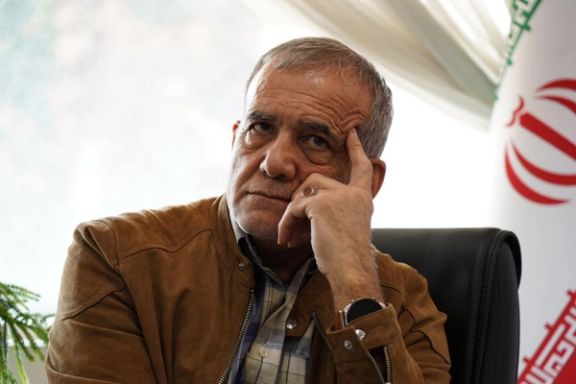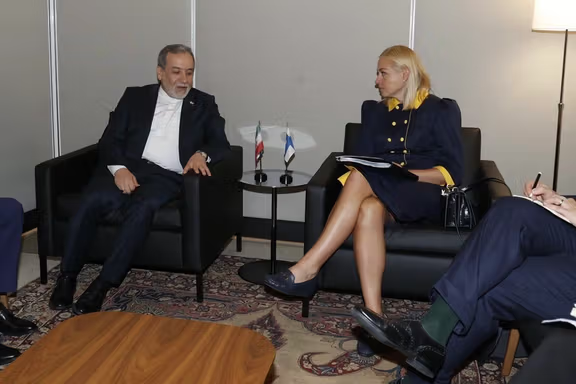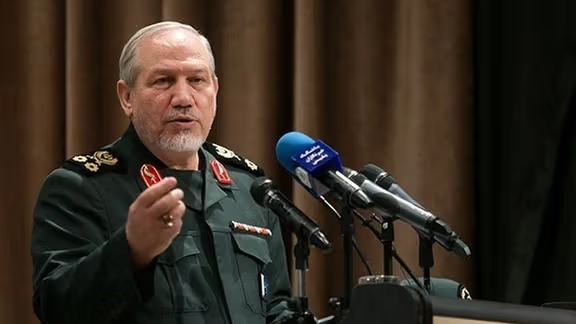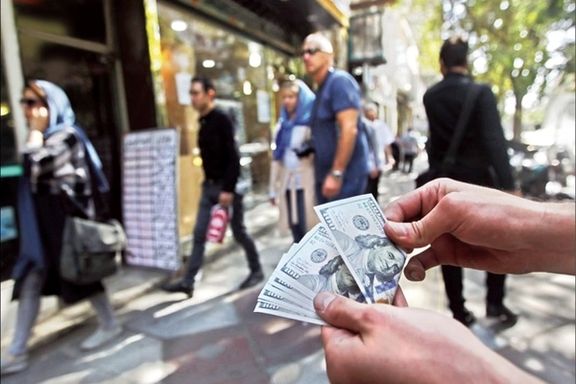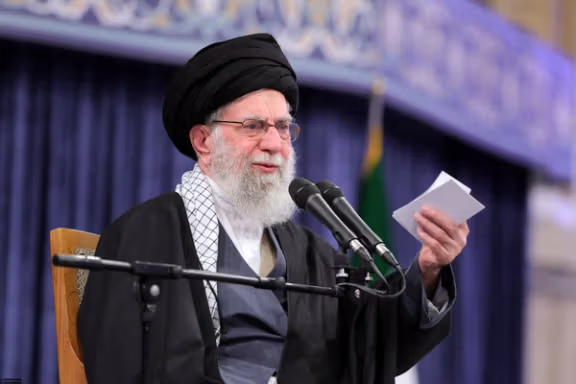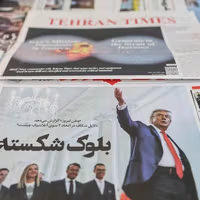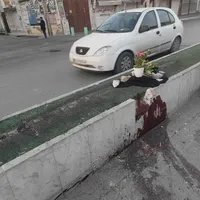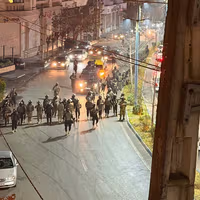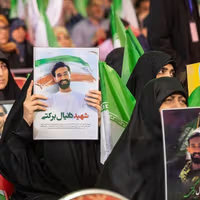Pezeshkian, who left New York on Saturday empty-handed after failing to secure a deal with European powers, said the United States demanded Iran surrender its stock of highly enriched uranium in exchange for only 90 days of relief from UN sanctions.
“If we are to choose between the unreasonable demands of the Americans and the snapback, our choice is the snapback,” Pezeshkian said, hours before the return of UN sanctions.
Kamran Matin, professor of international relations at the University of Sussex, told Iran International that Iran’s leaders knew negotiations would not succeed because halting enrichment and surrendering the highly enriched uranium stockpiles would have meant “total surrender”—something that would have endangered the Islamic Republic’ cohesion.
US-based commentator Ali Afshari argued that the responsibility went beyond Pezeshkian, stressing that presidents do not determine Iran’s strategic policies.
“Those who peddled illusions in the 2024 presidential ‘quasi-election’ cannot hold only Masoud Pezeshkian responsible for the return of UN sanctions and the war,” he wrote on X, adding that reformists had misled voters by urging participation.
Hardliners claim vindication
The snapback of UN sanctions has emboldened Pezeshkian’s conservative rivals who staunchly opposed the 2015 nuclear deal.
After the UN vote, his hardline election rival Saeed Jalili wrote on X: “In 2015 they said JCPOA would completely lift sanctions but almost nothing (happened). Ten years of a nation’s life was wasted because of this political behavior.”
Ultra-hardline lawmaker Amirhossein Sabeti, a close ally of Jalili, echoed his remarks: the JCPOA “was a colonial and one-sided agreement that wasted ten years of the nation’s life, restricted Iran’s nuclear infrastructure, and ultimately, by proving the wisdom of the revolutionary camp that opposed it from the beginning, exposed the illusions of the pro-West faction.”
On social media, ultra-hardline users demanded prosecutions. One wrote: “The end of the disgraceful JCPOA—the greatest shame in the history of Iran’s politics—congratulations to patriotic compatriots and those who care for Iran, and condolences to reformists, centrists, moderates, and all traitors to the homeland. It is time that those responsible for this disgraceful agreement be put on trial for this unforgivable betrayal.”
Some voices in the reformist camp lamented the collapse. Azar Mansouri, head of the Reform Front, accused conservatives of political score-settling.
“They fought it for years and now celebrate its death. But returning to the pre-JCPOA era means sanctions, isolation, and more pressure on the people. What is there to celebrate?”
Disillusionment with Pezeshkian
Frustration has increasingly turned toward the president. One user recalled his campaign pledge: “Pezeshkian had promised that if he failed to achieve his goals, including lifting sanctions, he would resign. Why didn’t he rely on popular mobilization to achieve his aims? Why doesn’t he resign now?”
Others mocked his unkept promises. “From the beginning, pinning hopes on Pezeshkian to lift sanctions was wishful thinking,” one activist wrote. “Someone who couldn’t deliver on his promise of lifting internet filtering after a year cannot be expected to deliver on lifting sanctions… He had also promised to resign if his pledges were not fulfilled.”
Journalist Mohammad Aghazadeh faulted reformists for urging turnout: “They frightened us by saying if Jalili won, the JCPOA would collapse, and war would break out. Pezeshkian was elected, but sanctions returned, and war came too—and will come again.”
Activist Hossein Razzagh, who boycotted the election, wrote: “The only thing Pezeshkian is not committed to is the votes of those he lured to the ballot box with promises of lifting the shadow of war. The only thing he is committed to is the Leader!”
Journalist Ahmad Zeidabadi urged Pezeshkian to level with voters: “Most of the decisive factors lie beyond his control. But he must frankly explain to the people what his plan is… In fact, he entered the second round of the presidential election with the aim of saving us from Saeed Jalili’s program. Now he is compelled to play Mr. Jalili’s role himself!”
Political activist Motahereh Gounei summed up the wider sense of betrayal: “You celebrated that Jalili didn’t come and Pezeshkian did! The country was ruined, its resources and infrastructure destroyed, we got both war and negotiations!"
"Sanctions returned, the dollar reached 110,000 tomans, and now I, a young Iranian, am awaiting a prison sentence simply for writing about Khamenei’s incompetence in governance and policymaking," the activist said.


